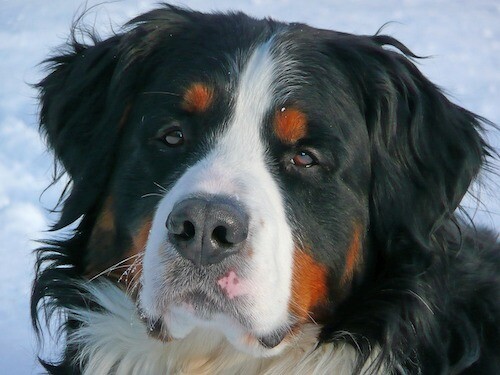Dogs are beloved pets that bring joy and companionship to millions of households around the world. However, like humans, dogs can also develop cancer, and some breeds are more prone to certain types of cancer than others.
In this context, it is important to recognize that cancer is a leading cause of death among dogs, and that some breeds have higher cancer rates than others. In this article, we will explore some of the dog breeds that have the highest cancer rates and discuss the factors that contribute to this trend.
By understanding the risks associated with certain breeds, pet owners can take steps to promote their dog’s health and wellbeing and work with their veterinarians to detect and treat cancer early. Here are the Top 10 Dogs Breeds With The Highest Cancer Rates.
*It’s essential to note that cancer in dogs is a complex disease influenced by various genetic and environmental factors, including breed, age, diet, exercise, exposure to carcinogens, and overall health status.
Bichon Frise
Bichon Frise are a breed of dog that have been found to have higher cancer rates compared to other breeds. While all breeds of dogs are at risk of developing cancer, Bichon Frise have been identified as a breed with a higher incidence of certain types of cancer, such as bladder cancer and lymphoma.
These types of cancer are known to be aggressive and can quickly progress, making early detection and treatment crucial for improving the prognosis and quality of life of affected dogs.
Bernese Mountain Dog

Bernese Mountain Dogs, like any other breed, can develop various types of cancer. According to some studies, Bernese Mountain Dogs may have a higher incidence of certain types of cancer, including mast cell tumors, osteosarcoma, and histiocytic sarcoma. Mast cell tumors are skin tumors that can be benign or malignant and can affect different parts of the body, including the limbs, head, and abdomen.
Osteosarcoma is a type of bone cancer that is aggressive and can cause pain, swelling, and lameness. Histiocytic sarcoma is a rare type of cancer that affects the immune system and can cause symptoms such as lethargy, loss of appetite, and weight loss.
Like with any breed, early detection and treatment of cancer are essential for Bernese Mountain Dogs. Regular veterinary check-ups and routine screenings can help identify any signs of cancer and ensure prompt treatment.
Bouvier des Flandres
Bouvier des Flandres may have a higher incidence of certain types of cancer, including lymphoma, hemangiosarcoma, and histiocytic sarcoma. Lymphoma is a type of cancer that affects the lymphatic system and can cause symptoms such as weight loss, lethargy, and enlarged lymph nodes.
Hemangiosarcoma is a malignant tumor that affects the blood vessels and can occur in different organs such as the spleen, liver, and heart. Histiocytic sarcoma is a rare type of cancer that affects the immune system and can cause symptoms such as lethargy, loss of appetite, and weight loss.
German Shepherd
German Shepherds may have a higher incidence of certain types of cancer, including hemangiosarcoma, osteosarcoma, and lymphoma. Hemangiosarcoma is a malignant tumor that affects the blood vessels and can occur in different organs such as the spleen, liver, and heart.
Osteosarcoma is a type of bone cancer that is aggressive and can cause pain, swelling, and lameness. Lymphoma is a type of cancer that affects the lymphatic system and can cause symptoms such as weight loss, lethargy, and enlarged lymph nodes.
Great Dane

Great Danes have higher cancer rates compared to other breeds, and there are several reasons why this might be the case. Firstly, Great Danes are a large breed of dog, and larger dogs are generally more prone to developing cancer than smaller breeds.
This is partly because larger dogs have more cells in their bodies, and the more cells there are, the higher the chance of mutations that can lead to cancer. Additionally, larger breeds like Great Danes have a shorter lifespan, which means that they have a higher chance of developing age-related diseases, including cancer.
Another reason why Great Danes may have higher cancer rates is due to their genetics. Some studies have identified specific genetic mutations that may increase the risk of developing certain types of cancer in Great Danes, such as osteosarcoma and lymphoma.
Additionally, Great Danes are more likely to develop a condition called gastric torsion or bloat, which can cause the stomach to twist and cut off blood supply to vital organs. The stress and inflammation caused by this condition have been linked to a higher risk of cancer development.
Labrador Retriever
Labrador Retrievers may have higher cancer rates is due to their genetics. Some studies have identified specific genetic mutations that may increase the risk of developing certain types of cancer in Labrador Retrievers, such as hemangiosarcoma and lymphoma. Hemangiosarcoma is a malignant tumor that affects the blood vessels and can occur in different organs such as the spleen, liver, and heart.
Lymphoma is a type of cancer that affects the lymphatic system and can cause symptoms such as weight loss, lethargy, and enlarged lymph nodes. Additionally, Labrador Retrievers have been used in breeding programs for many years, which can lead to the selection of certain traits, including susceptibility to cancer.
Cocker Spaniel

Cocker Spaniels are a relatively old breed, and as a result of years of selective breeding, they may have genetic predispositions to certain types of cancer. In particular, Cocker Spaniels are prone to developing skin cancer, especially melanoma, which is thought to be related to their coat color and exposure to the sun.
Another reason why Cocker Spaniels may have higher cancer rates is due to their diet and lifestyle. Poor diet and lack of exercise can contribute to the development of cancer, and Cocker Spaniels are prone to overeating, which can lead to obesity, a risk factor for cancer development.
Boxer
Boxers are a breed of dog that have been found to have a higher incidence of cancer compared to other breeds. According to the American Kennel Club, cancer is the leading cause of death among Boxers, accounting for nearly half of all deaths in this breed. Some of the most common types of cancer that affect Boxers include lymphoma, mast cell tumors, and hemangiosarcoma.
The exact reasons for the higher cancer rates in Boxers are not fully understood, but genetics and environment are believed to play a role. Boxers have a predisposition to certain types of cancer, which may be related to genetic mutations that increase the risk of cancer development. Environmental factors, such as exposure to carcinogens and pollutants, may also contribute to the higher incidence of cancer in this breed.
Rottweiler

Rottweilers may have a higher incidence of certain types of cancer compared to other breeds. One of the most common types of cancer in Rottweilers is osteosarcoma, which is a type of bone cancer. Osteosarcoma often affects the limbs and can cause lameness, swelling, and pain.
Other common types of cancer in Rottweilers include lymphoma and hemangiosarcoma, which can affect different organs such as the spleen, liver, and heart. Hemangiosarcoma is particularly aggressive and can spread rapidly, making early detection and treatment crucial.
Female Rottweilers have a higher risk of developing mammary tumors, which are similar to breast cancer in humans. Mammary tumors can be benign or malignant and often require surgical removal. Male Rottweilers have a higher risk of developing prostate cancer, which can cause difficulty urinating and blood in the urine.
As with any breed, it’s essential to monitor your Rottweiler’s health closely and take them to the veterinarian if you notice any changes in behavior, appetite, or physical appearance. Early detection and treatment can improve the prognosis and quality of life for dogs with cancer.
Golden Retriever
Golden Retrievers are a breed of dog that have been found to have a higher incidence of cancer compared to other breeds. According to the Morris Animal Foundation, approximately 60% of Golden Retrievers will develop cancer at some point in their lives. Some of the most common types of cancer that affect Golden Retrievers include lymphoma, hemangiosarcoma, and osteosarcoma.
The reasons for the higher cancer rates in Golden Retrievers are not fully understood, but genetics and environment are believed to play a role. Like many purebred dogs, Golden Retrievers are at increased risk of certain types of cancer due to genetic predisposition. Environmental factors, such as exposure to carcinogens and pollutants, may also contribute to the higher incidence of cancer in this breed.






